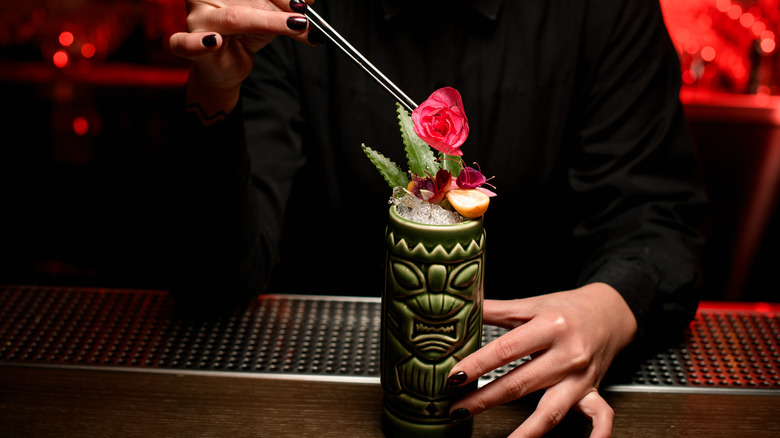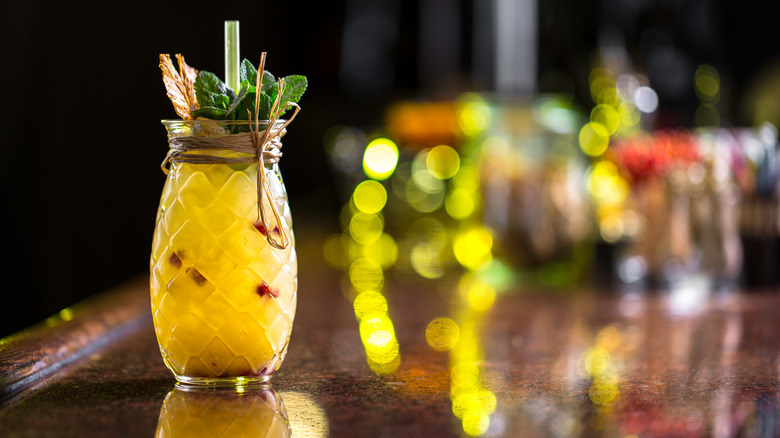The Complicated History Of Tiki Drinks
Two little words — "tiki drinks" — conjure up majestic images of sandy beaches, swaying hammocks, and tropical fruit, but some contend that the romantic image is misleading. Often incorporating island flavors and fanciful glasses with little paper umbrellas and fruit garnishes, tiki drinks are most commonly associated with Polynesia, but the truth of the drinks' origins isn't as clear or simple, according to MasterClass. Some of the most famous tiki drinks are the piña colada, mai tai, hurricane, and Singapore sling, all of which are made with tropical flavors of pineapple, coconut, or lime juice.
While the word "tiki" may be most often associated with alcoholic beverages that have a fruity flavor, the word itself is from the Māori language and is used to describe a stone or wooden carving that is in the shape of a person, usually with an angry expression, per Cocktail Society. While the tiki culture may have originated in New Zealand and Polynesia, it was in the 1930s that Western cultures became aware of it. Everything tiki and tropical grew in popularity after World War II when American soldiers who served in the South Pacific returned with an appreciation for the region. As tiki bars sprung up around the U.S., they often used ceramic mugs depicting the faces of "Polynesian" statues, according to the National Museum of American History. The bars themselves often served pan-Asian food and liqueurs that were still viewed as unusual at that time.
Images of colonization
While tiki drinks may elicit dreams of tropical places, the beverages were primarily invented in the United States, reports MasterClass. Two men in particular, Donn Beach and Victor Bergeron, were behind many of the drinks and two famous bars, Don the Beachcomber and Trader Vic's, that popularized tiki bars and drinks like the mai tai and the zombie, according to Cocktail Society.
In recent years as tiki beverages have seen a resurgence, the imagery associated with them has been scrutinized, such as drinking glasses made in the shapes of Māori deities. Shelby Allison, one of the partners behind Chicago's Lost Lake, told Eater that she and others wanted to be sensitive to marginalized people and not use those stereotypical glasses. For Allison, the focus is more on "tropical" and not on "tiki," the latter which she says often glorified colonization of foreign lands.
Allison is not alone in her pursuit, according to The New York Times, which reports that industry professionals are no longer ignoring how the tiki bar and its décor represent cultural appropriation, as well as racial inequity. Some in the industry believe that at the core of the tiki bar and its drinks is a love of flavor and having fun coming up with unique drinks. Mariah Kunkel, the co-founder of the Pasifika Project, said she believes that shifting the focus from tiki to tropical allows people to escape and enjoy a flavorful beverage without the use of cultural stereotypes.

